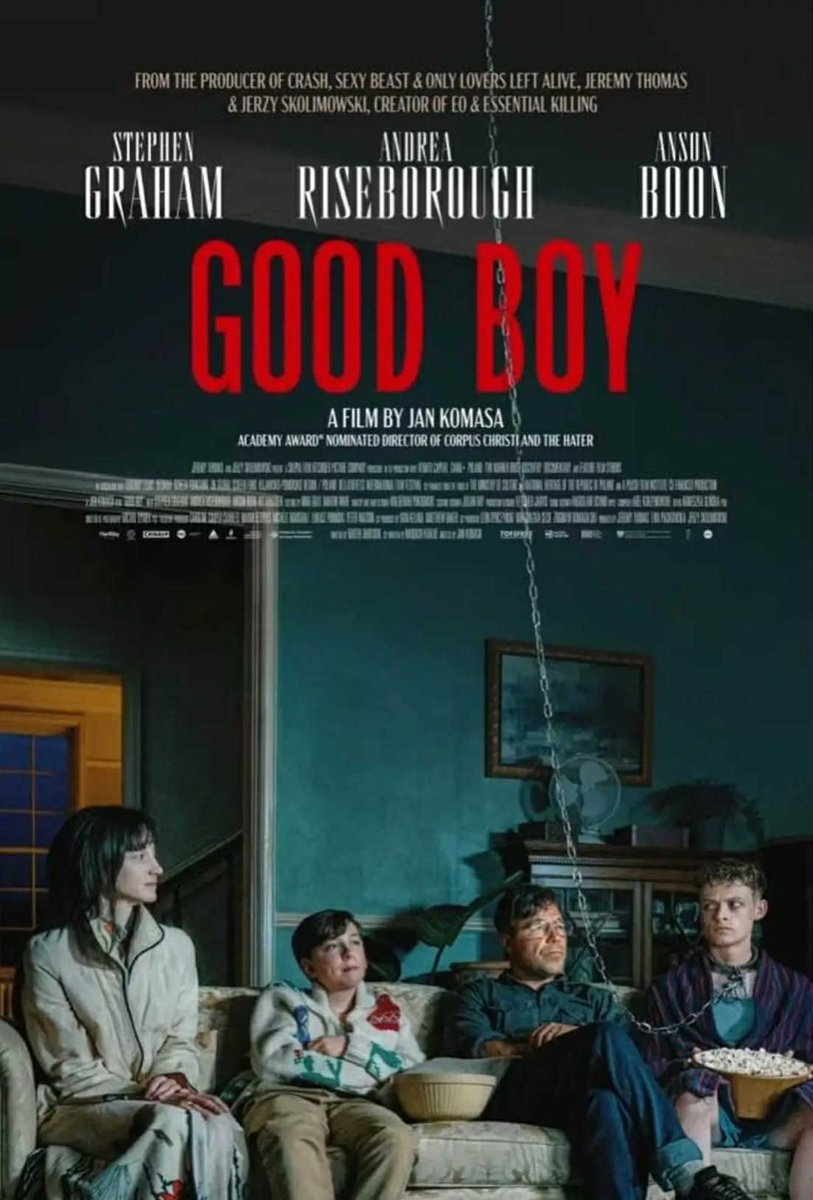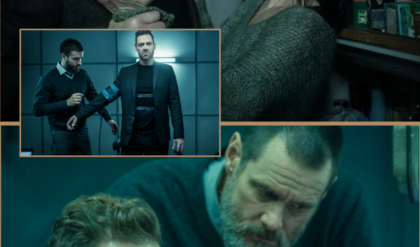Stephen Graham’s “Good Boy” — A Brutal, Brilliant, and Unexpectedly Human Thriller

In Good Boy, Stephen Graham once again proves why he’s one of Britain’s most fearless actors. Known for his intense performances in This Is England, The Virtues, and Boiling Point, Graham delivers what may be his darkest and most psychologically complex role yet — that of Chris, a seemingly mild-mannered man with a terrifying mission: to reform a wayward youth by any means necessary.
A Disturbing Premise Rooted in Realism
The film opens with a portrait of youthful excess so vivid it feels almost documentary in nature. We meet 19-year-old Tommy (played by newcomer Boon) during a chaotic night out — a debauched odyssey of booze, drugs, and self-destruction. He’s the living embodiment of the “youth gone wild” stereotype: arrogant, reckless, and utterly unrepentant.
In just a few minutes, director Bartek Bartosik plunges viewers into a grimy world of neon lights, blaring music, and bad decisions. Tommy urinates in public, cheats on his girlfriend right before her eyes, and picks fights with strangers. It’s ugly, loud, and uncomfortably real — the sort of night that feels like it could happen in any British city.
But the hangover that follows is far from ordinary. When Tommy regains consciousness, he’s no longer on the dance floor but chained in the basement of a remote countryside home somewhere in northern England. The grime and noise of the city have been replaced by silence and darkness. His captor introduces himself as Chris — a quiet, polite, middle-aged man who insists he’s only trying to help.
The Captor and the Captive
At first, Chris’s demeanor seems almost caring. He feeds Tommy, tends to his wounds, and speaks in the soft, deliberate tones of a therapist. Yet beneath the calm exterior lies something far more sinister.
Chris believes Tommy is morally bankrupt — a symbol of a lost generation — and he’s made it his personal mission to fix him. “You’ve lost your way, lad,” he tells him early on, “but I’m going to make you good again.” What begins as an unnerving act of misguided mentorship quickly morphs into something more violent and unpredictable.
Graham plays Chris with unnerving restraint. His performance is chilling precisely because it’s so ordinary. He’s not a monster in the traditional cinematic sense — there are no wild outbursts or manic rants. Instead, he radiates a quiet, self-righteous conviction that makes him all the more terrifying. His politeness is a mask; his sense of justice, a delusion.
A Thriller That Subverts Expectations
Just when Good Boy seems poised to spiral into torture-porn territory, Bartosik and co-writer Naqqash Khalid steer it toward something far more cerebral. Instead of focusing solely on violence, they explore the psychology behind it — the idea of control disguised as care, and how easily moral authority can curdle into madness.
As the story unfolds, layers of Chris’s own trauma and hypocrisy begin to surface. He isn’t merely punishing Tommy for being a “bad boy” — he’s projecting his failures, his grief, and his warped nostalgia for a more “disciplined” Britain. Tommy becomes both victim and mirror, reflecting the darker impulses of a society obsessed with judgment and moral correction.
Performances That Grip and Haunt
Boon is a revelation as Tommy. His transformation from arrogant teen to terrified prisoner feels painfully authentic. The chemistry between him and Graham is electric — a brutal dance of dominance and defiance. Their scenes crackle with tension, often oscillating between empathy and horror in the span of a few lines.
Graham, meanwhile, is at his absolute best. Every flicker of his eyes, every pause in his speech, suggests a man teetering on the edge of sanity. It’s a performance that recalls the chilling calm of Anthony Hopkins in The Silence of the Lambs and the tortured moralism of Michael Shannon in Take Shelter.
Direction, Tone, and Atmosphere

Cinematographer Tom Townend bathes the film in cold, desaturated tones that mirror its emotional landscape. The northern countryside feels as claustrophobic as the basement itself — empty fields stretching into nothingness, a perfect metaphor for moral isolation. Composer Adam Janota Bzowski’s minimalist score hums in the background like a faint heartbeat, building dread without ever overwhelming the performances.
A Moral Horror for the Modern Age
At its core, Good Boy isn’t just a thriller — it’s a disturbing reflection on our obsession with punishment, redemption, and control. It asks uncomfortable questions about who gets to decide what “good” really means, and how far we’re willing to go to enforce it.
By the time the credits roll, the audience is left not with easy answers but a haunting sense of complicity. Like Tommy, we’ve been forced to confront the darkest corners of judgment and forgiveness.
Final Verdict
Good Boy is not the haunted-house “doggy horror” that its cheeky title might suggest — it’s far more unsettling. This is a 5-star descent into moral madness, powered by Stephen Graham’s career-defining performance and a script that refuses to let anyone off the hook. It’s bleak, brilliant, and impossible to forget — a film that claws its way under your skin and stays there.
Would you like me to make a shorter version (around 300 words) suitable for an online entertainment column or a feature-style magazine rewrite with pull quotes and subheadings?





